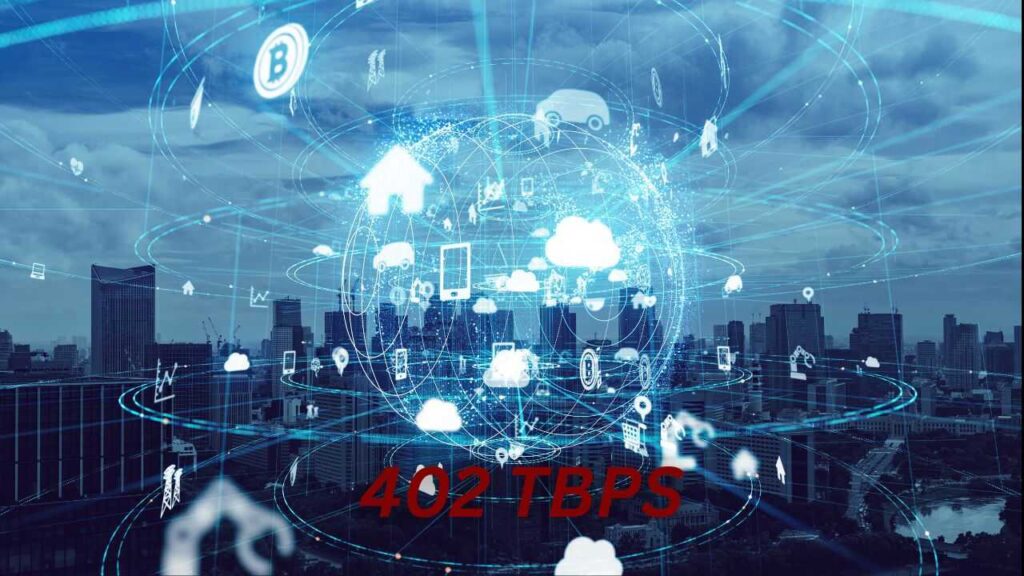Japan has once again surprised the digital world. This has been a revolutionary step because the best scientists in the country have attained a new internet speed record of 402 Tbps (terabits per second). Such an incredible speed enables users to download the entire Netflix content library within one second of network connection, and heralds the future of super-speedy, uninterrupted communication.
What is 402 Terabits Per Second? Mind-Blowing Speed Explained
In order to get an idea of this speed:
- 1 Terabit = 1,000,000 megabytes
- The average fastest residential internet access is 1,000 Mbps
- 402 TBPS = 402,000,000 Mbps
At these speeds you would be able to download 50,000 HD movies within a second or multi-terabyte server in no time. It is not merely an improvement in speed but a revolution using digital technologies.
How Japan Achieved the Fastest Internet Using Multi-Core Optical Fibers
The record was set by the Japanese National Institute of Information and Communications Technology (NICT) using multi-core optical fibers and wavelength-division multiplexing (WDM).
The fiber does not rely on transferring information using a single channel as in traditional cables but employs four cores each of which can be used in transmitting multiple streams of data. WDM divides the light into different wavelengths, so that each core can support dozens of signals at the same time, which drives up the aggregate speed to massive levels.
Downloading All of Netflix in 1 Second – Is It Really Possible?
Yes, theoretically. The size of the Netflix content library is estimated to just be a few petabytes. Such an amount of data can be transmitted within a second at 402 Tbps. Although this may sound like science fiction, the breakthrough in Japan demonstrates that these hyper-rapid transfers are no longer impractical.
This does not only imply binge-watching shows at a quicker rate, but also live access to data, on a scale previously unheard of.
Real-World Uses of Ultra-Fast Internet: From Healthcare to Cloud Computing
This type of speed is not entertainment only. It will transform the areas such as:
- Healthcare: Medical scan transmission, patient file transfer and surgical data sharing in real-time.
- Cloud computing: Ability to access massive cloud-based files in real-time thereby increasing productivity.
- Education: High-definition virtual classrooms with zero buffering.
- Science: Seamless sharing of large analysis data across the world.
- AI and Robotics: The faster the data responses, the better the machine and choice-making.
Future of Global Connectivity: What This Means for 5G, 6G, and Beyond
Through this innovation, Japan is preparing the ground in 6G networks, smart urban areas, artificial intelligence (AI)-based infrastructure, and near-zero system latency. Imagine:
- Decision-making in the cloud allows autonomous cars to react instantly.
- IoT and the use of real-time connectivity on smart homes and smart devices.
- Zero-latency immersive AR/VR experience.
- It is not just a record, it is a sneak preview of the way we will live, work and interact with each other in the near future (a decade).
Why Japan Leads the World in Internet and Telecom Innovation
The fact that Japan leads the internet speed is not by chance. The country’s priorities have always been:
- Significant investment into R&D
- Government-technology business partnership
- An innovative and fine engineering culture
Their unwavering drive in the telecom sector has seen Japan venture into the international scale as a leader in connection and science of networks.
Challenges of Implementing Record-Breaking Internet Speeds
Although there is excitement, the implementation of this on a global scale has certain obstacles:
- Cost: It requires multi-core fibers and they are expensive to install and maintain.
- Hardware compatibility: The existing devices are not capable of working at such speeds.
- International cooperation: There will be a need for global standardization in infrastructure enhancement.
- Security and regulation: Ultra-fast speeds will require a robust cybersecurity framework.
However, these obstacles can potentially be removed in the course of the next 5 to 10 years with the increased demand.
Final Thoughts: Japan’s Breakthrough and the Future of Internet Speed
The story about Japan exceeding the internet speed record is not just a tech record but a milestone on the way towards the digital future of humankind. At an incredible speed of 402 Tbps, the internet as we know today will be transformed. Japan has already demonstrated to the world what they could achieve in terms of quicker entertainment, more intelligent healthcare and instantaneous innovation.
Also Read : Seamless Connectivity: Embracing the Best eSIM Travel Solutions

